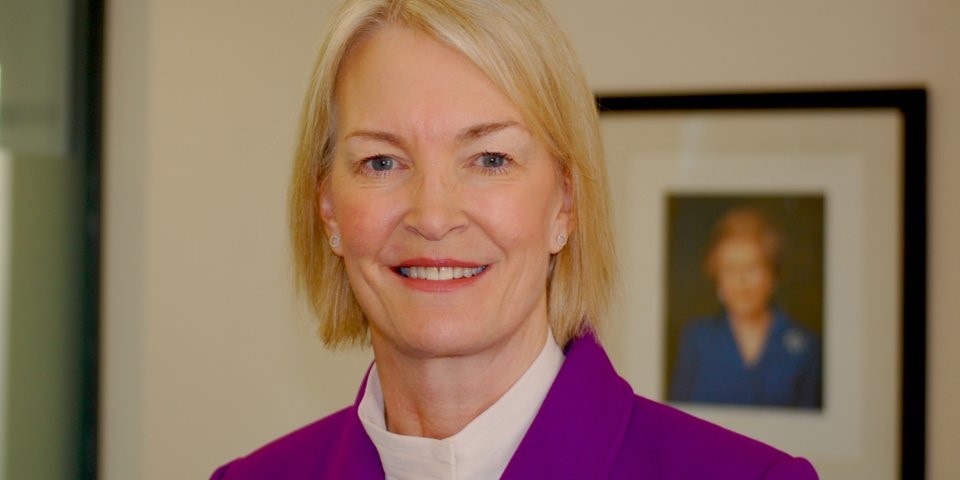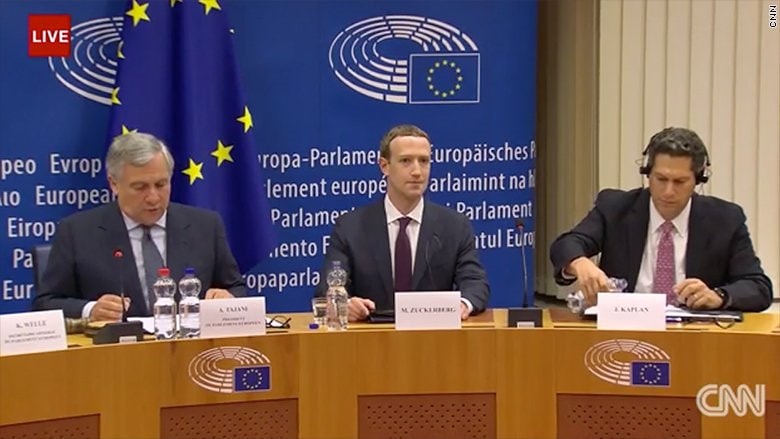Facebook and Google will be fined billions of dollars if they leave out toxic content.
The British government is about to take heavy-handed actions to force social networks to strictly control content, or face fines of up to billions of dollars.
- • The British government plans to impose fines of up to billions of dollars on Facebook and Google if these companies fail to remove harmful content from their platforms.
- • An independent enforcement unit will be able to fine companies up to 4% of their global turnover.
- • The UK government wants to remove inflammatory, violent and suicidal content.
Billion-dollar fines for Facebook and Google
The plan is expected to be detailed in March. Lawmakers around the world are drafting laws to regulate social media, according to Ms. James.
The UK government plans to set up an independent regulator that will be tasked with monitoring harmful content and imposing fines on companies that fail to take prompt action to remove it.
 |
| Margot James, head of the UK's Digital Commission, said Facebook and Google could be heavily fined if they fail to promptly remove harmful content. Photo: Business Insider. |
Ms James said the new body could impose fines equivalent to the Information Commissioner's Office (ICO), which is up to 4% of a company's global turnover. This is equivalent to2.2 billion USDfor Facebook, and5.4 billion USDfor Google, based on the two companies' 2018 revenue.
Representatives from Google and Facebook both said they were willing to cooperate with the new regulations.
“There will be severe sanctions, and there will be financial penalties. The penalties have to be deterrent. We can see that from the ICO fines,” said Margot James.
This is the first time the British government has proposed such a tough draft for technology and social media companies. In addition to financial penalties, leaders could also face criminal prosecution if they fail to control their platforms.
“We will consider all possible sanctions,” Jeremy Wright, the UK culture secretary, told the BBC.
 |
Facebook CEO Mark Zuckerberg was criticized when he testified before the European Parliament about fake news and widespread extremist content on Facebook. Photo: CNN. |
There is currently no precise definition of “harmful content”. Ms James said the government would take a broad view of harmful content, analysing everything from discriminatory speech, terrorism, bullying and violence to child sexual assault and content related to suicide and self-harm. The spread of fake news could also be controlled.
“We don’t have a precise definition yet,” said Ms. James. “What is illegal and unacceptable in real life is also illegal and unacceptable online.”
She also said that social networks are not entirely at fault for the presence of harmful content. However, it is their responsibility to remove this content, so if they cannot do so, it is the social networks' fault.
“We need to take that stuff down before it has an impact. That’s what we’re talking about. If we wait a few weeks, it’s too late.”
He wants to be at the forefront of social media regulation.
British ministers have yet to agree on how the new body would be organised. They could also use Ofcom, the body that currently regulates radio and television content.
Ms James said that while the UK government wanted to control bad content, it also had to be sensitive to avoid stifling creativity.
“We don't want to create an environment that is all about exclusion and suppression, because we also want to encourage creativity.”
 |
| With billions of users across Facebook, WhatsApp and Instagram, Facebook needs to respond more quickly to harmful information. Photo:AP. |
She also said the UK's laws could serve as an example for other governments to follow.
Damian Collins, of the UK's Digital Commission, announced the results of an 18-month investigation into Facebook and the problem of fake news last week. Collins said tech companies should be fined large sums if they fail to control bad content.
“A strong penalty regime will be crucial to ensure that tech companies do what governments want them to do. As we saw with Germany’s NetzDG, tech companies respond with their pockets, and if they don’t live up to their responsibilities, they deserve a big fine,” said Collins.
